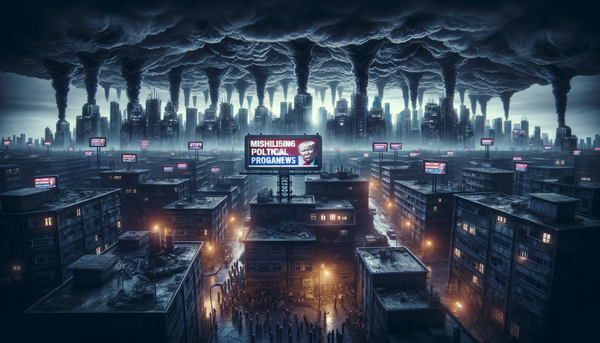The Dismal Cloud of Disinformation: The Maine Mass Shooting Saga
Explore the dark consequences of rushed reporting & social media rumors in the Maine mass shooting, unraveling how disinformation eroded public trust and blurred lines between fact and fiction.

The chilling event that unfolded in Maine, leaving behind a trail of devastation and sorrow, has been further tarnished by the insidious veil of disinformation. The media's scramble to be the first to break the news, coupled with the unchecked wildfire of social media rumors, has muddled the facts, leading to a catastrophic breakdown in public trust.
In an era where information travels at the speed of light, the quest for immediacy has eclipsed the need for accuracy. The Maine mass shooting, a horrifying incident in its own right, became a breeding ground for speculation, misinformation, and outright falsehoods. News outlets, in their haste to stay ahead of the competition, made grave mistakes, disseminating incorrect details that later proved to be far from the truth.
The consequences of this race to be first are far-reaching and insidious. The public, bombarded with conflicting reports and sensationalized narratives, is left grappling with a distorted reality. Trust in media dwindles as the line between fact and fiction blurs, giving rise to an atmosphere of skepticism and doubt.
The problem is exacerbated by the unchecked power of social media. Unverified information spreads like wildfire, with individuals hastily sharing news without a second thought to its accuracy. In the case of the Maine mass shooting, this led to the rapid circulation of incorrect assumptions about the perpetrator, the motive, and the sequence of events. The fallout was immediate: innocent lives were smeared, and the public’s perception of the incident was irrevocably skewed.
This dark episode lays bare the vulnerabilities of our information ecosystem. The media’s inability to uphold its duty of care has eroded public trust, while social media platforms have become conduits for disinformation. The resultant atmosphere is one of mistrust and confusion, where the truth is obscured by a fog of falsehoods.
In the aftermath of the Maine mass shooting, the question that looms large is: How did we get here? The media, once regarded as the bastion of truth, has been compromised by the relentless pursuit of immediacy. The pressure to break news first, at the expense of due diligence and verification, has created a fertile ground for disinformation.
Social media, too, plays a culpable role. The platforms that connect us have also become the purveyors of falsehoods, enabling the rapid spread of disinformation. The onus is on these platforms to implement stringent checks and balances, ensuring that the information that circulates is verified and trustworthy.
The dark saga of the Maine mass shooting serves as a stark reminder of the perils of disinformation. It underscores the urgent need for media outlets to prioritize accuracy over speed, and for social media platforms to take responsibility for the content they disseminate. As consumers of news, we must also be vigilant, questioning the veracity of the information we encounter and resisting the urge to share unverified news.
In these tumultuous times, the fight against disinformation is more crucial than ever. It is a battle that must be waged on multiple fronts, with media outlets, social media platforms, and the public all playing their part. Only then can we hope to clear the dismal cloud of disinformation that has shrouded the Maine mass shooting, and restore trust in our information ecosystem.



